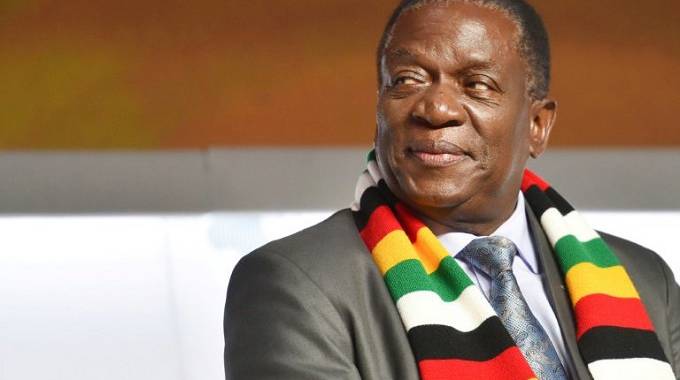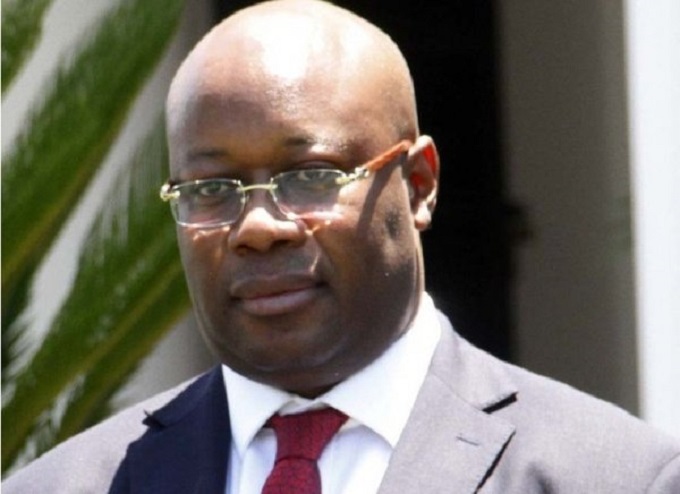Putting servant-leadership into perspective and context

Tomson Dube
Part I
THE current mantra in Zimbabwe — Zimbabwe is open for business — has become synonymous with Servant Leadership especially by the public office bearers as they emulate the President of the Republic of Zimbabwe, His Excellency, Cde Emmerson Dambudzo Mnangagwa.
I have heard on numerous occasions before, during and after the harmonised elections of July 30, 2018, the same phrase (servant-leadership) being used by His Excellency, the President of Zimbabwe and his honourable ministers emulating the same. I would like to shed some knowledge to the public and some of the Honourable ministers who merely regurgitate the phrase without adequate knowledge and understanding of what this powerful phrase means.
The notion of servant leadership has been recognised in the leadership literature since leadership gurus like Burns in 1978 and Greenleaf’s 1977 publications. There are 10 characteristics of servant leadership (i.e. listening, empathy, healing, awareness, persuasion, conceptualisation, foresight, stewardship, commitment to growth of people, and building community) and this is based solely on readings by Greenleaf.
Some argue that these characteristics are not grounded in solid research studies.

Mr Raj Modi
Given the pronouncement by His Excellency the President, Cde ED Mnangagwa, that he views his leadership style as a servant leader, his emphasis is on community, empowerment, shared authority, and relational power.
Servant leaders provide great promise for the future. This is what the President ED Mnangagwa represents. According to Greenleaf (1977), servant leaders are leaders who put other people’s needs, aspirations and interests above their own. The servant leader’s deliberate choice is to serve others.
Actually the servant leader’s chief motive is to serve first, as opposed to lead. This concept is historically represented by Jesus Christ who for me is the core-construct of servant leaders. One outstanding characteristic of servant leaders is that they seek to transform their followers to “grow healthier, wiser, freer, more autonomous, and more likely themselves to become servants.” (Sendjaya & Sarros, 2002, p.58). Robert K Greenleaf was the AT&T Chief Executive Officer in the United States of America (USA) when he conceived this notion of servant leadership and later on introduced it into the organisational context.
Contextually, the servant leader is servant first . . . It begins with the natural feeling that one wants to serve first, to serve first. That conscious choice brings one to make sure that other people’s highest-priority needs are being served. Put into perspective, Robert K Greenleaf understood this concept through reading of a Herman Hesse’s (1956), story about a spiritual pilgrimage, Journey to the East.
In the story, we see a band of men on a mythical journey . . . The central figure of the story is Leo, who accompanies the party as the servant who does their chores and all menial jobs for the travellers but also sustains them with his spirits and song. The servant’s presence has an extraordinary impact on the group, but when the servant becomes lost and disappears, the group of travellers falls into disarray and abandons the journey. Without the servant, they are unable to carry on. The servant was leading the group. He emerged as a leader by caring for the travellers. (Northouse, 2007, p.349).
The narrator, one of the party, after some years of wondering, finds Leo and is taken into the Order that had sponsored the journey. There he discovers that Leo, whom he had known first as servant, was in fact the titular head of the Order, its guiding spirit, a great and noble leader.
As appealing and refreshing as Greenleaf’s conceptualisation of servant leadership is, Greenleaf is the individual who first introduced the notion of servant leadership to everyday human endeavour. It was Christianity’s founder Jesus Christ, who first taught the concept of servant leadership. From the narrative accounts of his life in the Bible, it is evident that servant leadership was taught and practised more than two thousand years ago.
This practice has been echoed in the lives of ancient monarchs for over 1000 years. Ancient monarchs acknowledged that they were in the service of their country and their people – even if their actions were not consistent with this.
What we witnessed on Sunday, 30th August 2018, the inauguration of the President, His Excellency, Cde ED Mnangagwa in modern day Zimbabwe, the coronation ceremony involved the acknowledgement of service to God, country, and the people. Politicians define their role in terms of public service. And service has always been at the core of leadership in the spiritual arena, symbolised at the highest level by Jesus Christ washing the feet of his disciples.
In addition to serving, the servant leader has a social responsibility to be concerned with the have-nots and to recognise them as equal stakeholders in the life of the organisation. In becoming a servant leader, a leader uses less institutional power and less control while shifting authority to those who are being led (Northouse, 2007).
While President Cde ED Mnangagwa has articulated his leadership style as a servant leader, are all his followers of the same understanding? For example, in developed countries a politician runs for office because s/he has the money to develop their constituency. They have the money, they take on board the constituency ideas and develop the community together with the people.
What we have witnessed in Zimbabwe and other African countries over the years is that some if not most of our politicians go into politics to get the money, to spend (ukukapula/kudya) and get rich and richer.
The poor they purport to represent remain poorer.
The said politician sees it as a right and a time for them to eat. My prayer is that the newly appointed MPs, and the appointed Cabinet ministers should take a leaf from humble names such as the former Minister of Education, Hon David Coltart. He refused the luxury of a brand new ministerial vehicle and parliamentary vehicle.
A person like the recently elected MP for Bulawayo South and the deputy minister of Industry and Commerce, Mr Rajeshakumart Modi. It is clear he is not in it for the money but for a legacy and mandate to do community work. So the other old timers and newly elected ones, can parrot the servant leadership statement as much as they want, but they themselves may or are not servants at heart. People understand what servant leadership is and know what it is (servant leadership) but are not what it is.
Servant leaders do not announce that here I am. Look at me, I am a servant leader . . . The spirit of servanthood is not there at all. However, after labouring for 38 years under the tutelage of the former President of Zimbabwe, Mr Robert Gabriel Mugabe, the current President (Cde ED Mnangagwa) has a wealth of experience and desires to not make the same mistakes.
People should see it (servant leadership) and not to be told through pronouncements. Walk it, live it talk it and we will say here is a servant leaders.. Recently, I read an article by Nick Mangwana’s Views from the Diaspora in our sister paper, The Herald. Mangwana (2018) posited that one may ask why President Mnangagwa saw it fit to contest for power. The answers are simply to reform Zimbabwe’s democracy, its policy, its economic system and its way of doing things. Zimbabweans would simply say, to shift its paradigm.
As projected by Cde ED, this trajectory and desire will make Zimbabwe a middle-income country by 2030. Mangwana (2018) points out that this is not a push for self-actualisation but one to a desire to actualise greatness in others. For one to do this they should listen and listen deep and good. This is why this descriptor is favoured by President Mnangagwa who many agree is a listening President.
The question is whether his colleagues in leadership are on board? If the newly appointed crop of a diversified democratic technocratic Cabinet will defy all odds and live up to their calling, then Zimbabwe will definitely be a middle-income economy by 2030.
The same questions that were raised by Mangwana, I still raise them now: Are the citizens on board? Is his bureaucracy on board? Is everyone prepared to develop intentness on listening? Let us give our visionary and listening President a chance to chart out the great path he has taken and shown. The much talked about diverse Cabinet has to start the work and literally should hit the road running.
Congratulations President ED Mnangagwa for retiring the old guard, that is bold and its leadership.
My prayer is that you tackle corruption and start this great journey without an apology. Part II looks at the application of servant leadership in the context of President ED Mnangagwa’s pronouncements and government.
*Pastor Tomson Dube is a lead pastor at a church in Bulawayo and the University Chaplain at the National University of Science and Technology (Nust). He writes this article in his own personal capacity as a leader and a voice to the nations. You can get hold of Pastor Tomson Dube via e-mail on [email protected]











Comments